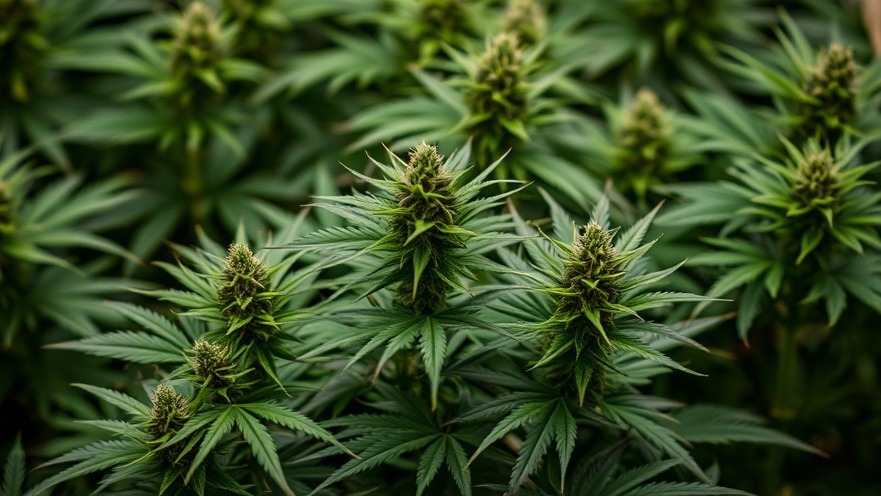
The Battle Over THC Regulation in Texas: What You Need to Know
On June 22, 2025, Texas Governor Greg Abbott made headlines after vetoing a controversial ban on THC products. Instead, he proposed a regulatory approach, setting off a political firestorm that highlights the complexities of cannabis legislation in the Lone Star State. The suggested legislative framework aims to both protect public health and align Texas laws with the larger federal landscape established by the 2018 Farm Bill, which legalized hemp products.
The Fallout: Lt. Gov. Patrick’s Strong Opposition
Governor Abbott's veto was met with substantial criticism, particularly from Lieutenant Governor Dan Patrick, a staunch advocate of the THC ban. Patrick had labeled the prohibition as one of his top legislative priorities over the last 17 years, emphasizing the dangers of unregulated THC products like gummies and vapes that could easily reach minors. He took to social media to express his disappointment, stating, "Abbott’s late-night veto will leave law enforcement and families in despair." This conflict underscores a larger divide in Texas politics regarding cannabis regulation and public safety.
Understanding the New Proposal: A Shift in Strategy
Governor Abbott's proposed regulatory framework not only aims to restrict THC sales to minors but also plans for stricter testing and manufacturing regulations. In his statement, Abbott emphasized, "Texas must enact a regulatory framework that protects public safety" while integrating enforcement structures and possible local governance options that could restrict THC sales. Advocates hope that this approach will not only protect children but also stabilize the cannabis market in Texas.
Why This Matters: Implications for Texas and Beyond
The decision to regulate rather than ban could set a precedent for cannabis laws across the United States. As states grapple with similar issues surrounding cannabis legalization and regulation, Texas's actions may serve as a model for others. The move also aligns with growing public sentiment that advocates for a more regulated cannabis industry rather than outright prohibition, demonstrating a shift in perspectives among various political factions in Texas.
The Regulatory Landscape: Key Features of the Proposed Framework
The proposal provided by Abbott presents several noteworthy features aimed at ensuring safer consumption practices. Some ideas include:
Restricting sales and marketing of THC products to minors
Comprehensive testing of all THC products throughout the production chain
Local government autonomy to limit THC vendors within their jurisdictions
Enhanced funding for law enforcement to monitor and enforce regulations
These proposed measures reflect a balancing act between public safety, business interests, and consumer rights, indicating a thoughtful approach to a complex issue.
Public Safety Concerns: The Need for Vigilance
Despite the potential benefits of regulation, advocates of Senate Bill 3 argue that a complete ban might have been a more effective solution for addressing public health risks associated with high-potency THC products. As political opponents clash, public safety remains the overarching concern. Abbott's recommendations to enhance enforcement and monitoring will be crucial in mitigating risks to consumers, particularly young ones who may be more susceptible to the dangers presented by high-THC products.
Actionable Steps for Texans: What's Next?
As Texas gears up for a special legislative session starting July 21, the immediate focus will be on crafting an effective regulatory framework. It’s essential for constituents to stay informed and engaged in the legislative process, advocating for safety measures that adequately reflect public health concerns. Engaging with local representatives and voicing opinions on proposed regulations can empower Texas residents to influence policies that impact their communities.
Conclusion: A Turning Point for THC Legislation in Texas
Governor Abbott's recent actions signify a pivotal moment in Texas politics, illustrating the ongoing struggle between regulation and prohibition in the landscape of cannabis legislation. As regulators push forward with proposed guidelines, the story isn't just about drug policy—it's about safeguarding public health, aligning with federal laws, and addressing the evolving needs of Texas communities.
 Add Element
Add Element  Add Row
Add Row 



Write A Comment